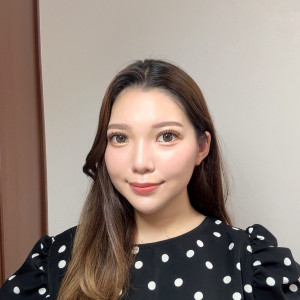
Taking Japanese Classes to Access the Third Most Powerful Country in the World
Japan was in ruins in the aftermath of World War II, but the country has been able to "recover" and become one of the most powerful countries in the world. Since 2010, the country of the rising sun has been the third largest economy in the world. 
Having Japanese Lesson is Good for Business
As an English speaker, have language skills in Japanese is very popular with companies who do a lot of business with the land of the rising sun. Therefore, aside from studying Japanese to learn about Japan, you can improve your employability. Taking Japanese language courses in order to find a job in Japan should indeed open a few doors. Here are some examples of a few ways to learn Japanese:
- Study Japanese in a language school or a Japanese university
- Nisshinkyo: an association for the promotion of Japanese education
The first idea that comes to mind when you go to a foreign country is to teach your mother tongue. So, you could perhaps become an English teacher in Japan. You will give private English in-home tutoring lessons, or teach young Japanese students the basics of the English language in a school. Find a good Japanese tutor Melbourne here. 
- the alphabet: some kanji, hiragana katakana
- how to read Japanese writing
- some words of vocabulary
- say thank you in Japanese (arigatō), say I love you in Japanese
- say hello in Japanese (ohayō, ohayō gozaimasu, konnichiwa, konbanwa)
- count in Japanese (to do the math on what you are owed!)
- to write a few words in Japanese
You do not have to be bilingual in Japan in order to teach English to Japanese students! If you are more advanced in Japanese, here is what you can aspire to in Japan:
- professor-researcher or a graduate or PhD student
- teaching English as a foreign language in Japanese schools
- private English tutor
- translator translating written documents from Japanese to English, perhaps even for large institutions such as the Embassies or the UN.
- a cook: you could learn how to make sushi, etc.
- bar waiter
- IT professional
There are a wide range of possibilities, provided that you speak the best Japanese possible!
Choose Japanese
If you are a beginner in the Japanese language, it is better to learn Japanese before visiting Japan. Taking an intensive Japanese language course before heading to Japan would be a good idea for example. Remember that the country is an island: the Japanese speak Japanese, not English.
Take Japanese Classes
To prepare for your trip to Japan, start by asking a Japanese tutor for an introductory course for beginners, or for intensive courses if your departure is imminent. 
- Minna no nihongo
- Kanji to kana
Here are useful basics for you to feel comfortable and work in one of Japan's cities--from Sapporo to Fukuoka, Kyoto to Osaka:
- Learn the Japanese alphabet: try to master Katakana hiragana and as much of kanji as possible.
- Learn phrases from everyday life by heart. Simple sentences and questions.
- Learn to count in Japanese
- Know how to ask for directions
- Have conversations in Japanese to improve your pronunciation
- Learn the history of Japan and take an interest in Japanese culture
- Read and write Japanese words
Pass the JLPT
This certificate is awarded by the Japan Foundation. The JLPT (Japanese Language Proficiency Test) is the most important Japanese language test to test the skills of non-native speakers. It will be proof of your language level and you can send it to potential employers. This is the Japanese equivalent of the TOEIC or the TOEFL. The test is in the form of a multiple-choice quiz. There are five levels of difficulty. Test takers can take it twice a year. The levels range from N5 (the lowest level) to N1 (advanced level). The JLPT evaluates one's ability to understand Japanese. In Japan, if you would like to enter a university or work for a Japanese company, you have to:
- pass the N2 level for foreign speakers
- pass the N1 level if you are of Chinese or Korean origin.
- Japanese universities require the N1 level if you are looking to take a master's course.
What's more, having a qualification like this will allow you to teach Japanese in your own country as well.
Japanese Courses Will Teach You the Japanese Customs of Politeness
In Japan, politeness is a sacred code of conduct that applies to everyone. 
- Teineigo, language of politeness
- Sonkeigo, language of respect
- Kenjōgo, language of modesty
The rules of politeness are inspired by Shintoism and you will not find a job in Japan if you deviate away from them. Here is a small lexicon of words to pronounce as well as some gestures that signal politeness:
- bow your head to greet someone: no physical contact
- say "hajimemashite" (delighted to meet you), then "yoroshiku onegaishimasu" (I leave it to you) when the presentations are made
- say "sumimasen" (sorry) to apologize, with a small nod of the head
- avoid putting yourself forward
- humility: politely refuse the compliments that are made to you
- say "otsukaresama" when leaving work to congratulate your interlocutor for his efforts
- "O saki ni" means "I'm leaving before you", say it if you leave the workplace before other colleagues
- "O daiji ni" if a colleague is sick. It means "take care of yourself! "
- use both hands and have both arms extended when you give an object to someone
- in a business, do not give money directly into a manager's hand, place the cash in a tray reserved for this on the counter
Any Japanese course that you take, whether it be online, with a tutor, or at a language institute, should teach you about the very strict rules of politeness. Each country and culture has its own norms and traditions that must be respected, and Japan is no different. Not respecting these codes can be very poorly perceived by the Japanese. As a language exchange student, employee or holidaymaker in Japan, you will be called "gaikokujin"--which means "the foreigner". And as such the Japanese will forgive you for not following this code exactly. Although it would be good to brush on the basics before you travel! Of course, with Japanese courses London, you can practise the proper terms of address with a Japanese native speaker!
Summarise with AI:















